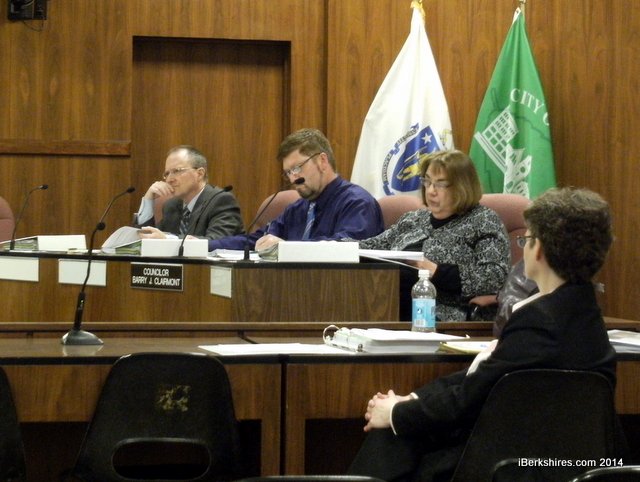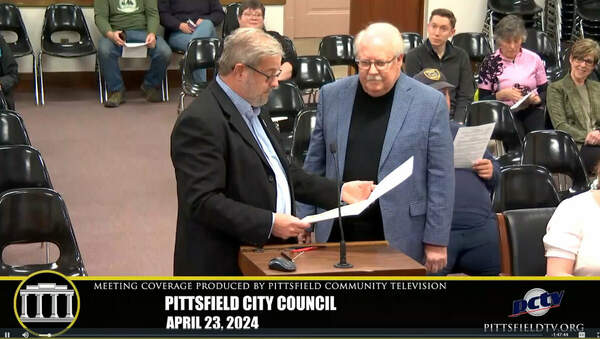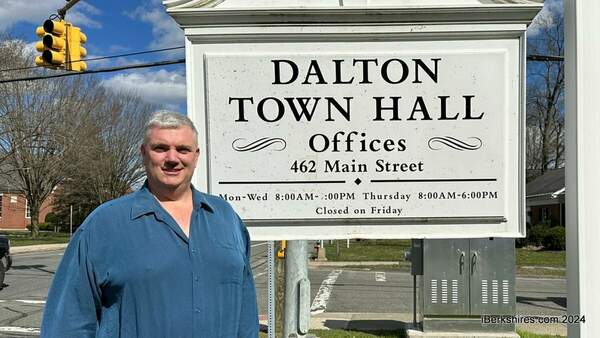Division Emerges About Pittsfield Panel's Role
 The Ordinance Review Committee is grappling with how broad it should take its mandate to ensure city codes conform to the new charter. The Ordinance Review Committee is grappling with how broad it should take its mandate to ensure city codes conform to the new charter. |
PITTSFIELD, Mass. — Whether or not to hire a consultant to aid the city's fledgling Ordinance Review Committee hinges largely on just what the role of the committee will be - a question that is still being debated among its members.
At its second meeting on Thursday, the committee expressed favor with a presentation by General Code on how it would undertake a "front-to-back" review of the city's code, but opinion seems split on whether such a review is within the board's purview.
Under a provision (23-5) of the city's newly enacted Charter document, approved by voters in November, the City Council was to immediately form a committee "to begin a review of the city ordinances to prepare such revisions and amendments as may be needed or necessary to bring the ordinances into conformity with the charter and to fully implement the charter."
In appointing the committee, the City Council went a step further, adding the review of the city's code of ordinances against Massachusetts General Law as part of the scope of charter implementation.
City Solicitor Kathleen Degnan, however, said Thursday that the provision in the City Council's petition that formed this committee that adds the task of aligning the code with state law is invalid, because it alters the charter instruction, and amending of the charter is not within the council's power.
"It's pretty apparent that the charter study group wanted to make this narrow, because of the work it would entail," said Degnan, asking the committee to restrain the scope of its work to reconciling the charter with the city code. "To that extent that it references Massachusetts General Law, it's not valid."
Degnan opposed the hiring of a consultant at the committee's formational meeting the week before, but at the time did not indicate that the council's instruction to the committee was in conflict with the charter.
City Clerk Linda Tyer and City Councilor Barry Clairmont did not concur with the Degnan's interpretation that the additional assignment of a task to a council-appointed committee constituted an amendment of the city charter, saying the committee would still be following the instruction of the charter, but also supplementing that work with the further instructions from the council.
"As long as we do what we're asked to do in the charter, then we have complied with the charter," said Clairmont. "If we do additional work that wasn't contemplated by the charter but was contemplated by the City Council, they haven't removed anything, they're just adding a task."
Tyer pointed out that another provision of the charter, section 10-4, mandates that every five years beginning in 2015, the City Council shall also initiate a committee to take on precisely the kind of additional overhaul or "recodification" of the city code that this committee is contemplating combining with its current review.
"The question for the committee is do we want to take the opportunity now, and do this review, or do we want to wait a few months from now in 2015 when we're obligated by the charter to do it anyway," said Tyer, noting that the full yearlong process would not be done until sometime in 2015 anyway.
"You can take my advice or not," said Degnan. "But if you take on the task of bringing in the Massachusetts General Laws, you're not doing what the charter says."
Degnan also pointed out that it would be up to the mayor to approve the funds to hire General Code, and that if the committee decides to take on the broader task and that budget allocation is not made, it could create a predicament.
Patrick Smith, a representative of the General Code firm, told the committee that the recodification services his company offers, which would cost $13,900, would give a section by section analysis of the City Code for all discrepancies, generating suggested solutions to bring the ordinances into consistency with the charter, state law, and each other.
"We have to look at everything anyway," Smith told the committee. "There's a double benefit, because you're doing exactly what you've been told to do, but you're also improving the overall code in the process."
"I think it's the cleanest, easiest way to do it," he said.
"To be clear on this, we should have some guidance from the mayor and the City Council," said committee member David Murphy, agreeing with Degnan that the committee's involvement in assessing the code against the more daunting intricacies of the state laws may not be valid under the charter mandate.
"I feel that the scope of this committee was narrow, under the charter recommendation," agreed Vicki Kane, who like Murphy served on the previous Charter Review Study Committee.
"If the task were limited to what's in the charter, then I think the committee itself should do it," said Jody Philips, former city clerk. "If we decide we're going to increase the scope of the committee, then I would be supportive of hiring a consultant."
"While it's not necessarily the charge of the committee, there is some benefit to updating the entire code right now if we have the opportunity," Philips added.
Clairmont suggested that two members of the committee arrange to meet with Mayor Daniel Bianchi to see if he is willing to fund the hiring of General Code for a dual review satisfying both charter provisions, which the committee voted in favor of. The committee tabled the issue of hiring a consultant to its next meeting.
Tags: charter review, city charter, ordinances,















